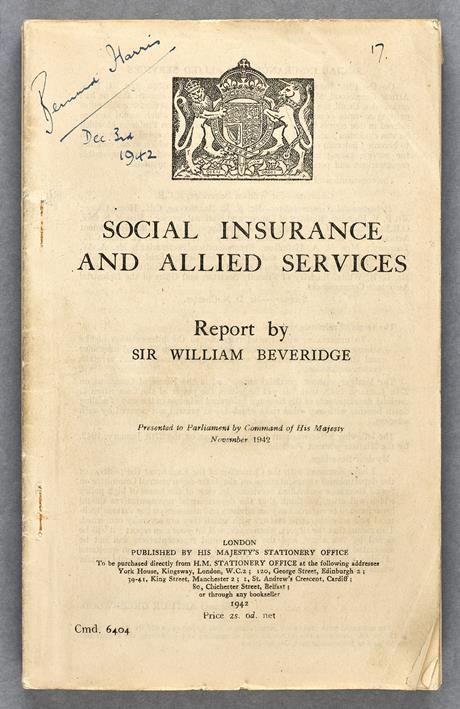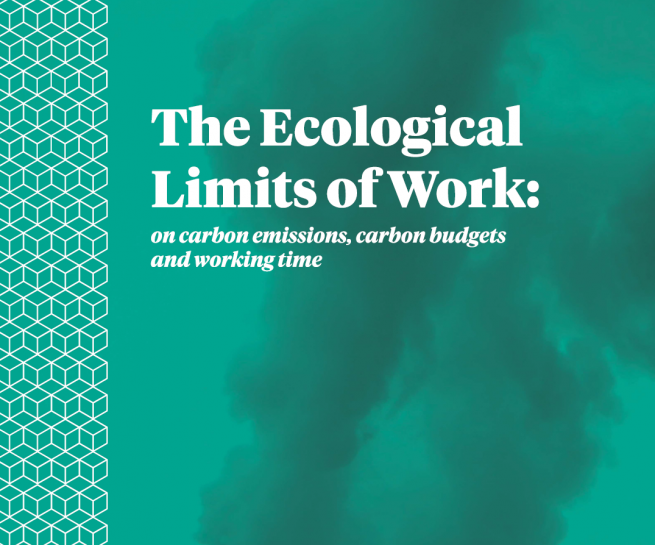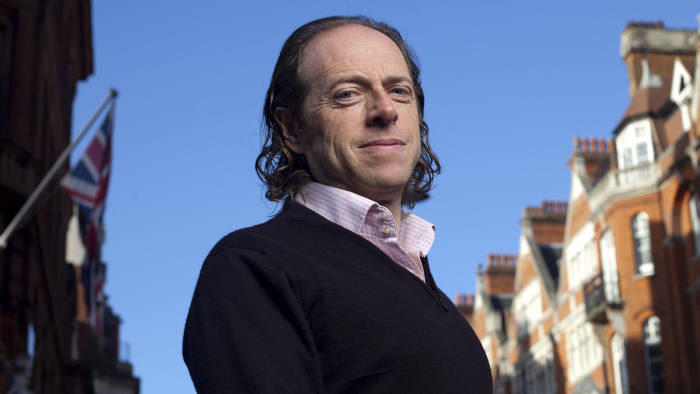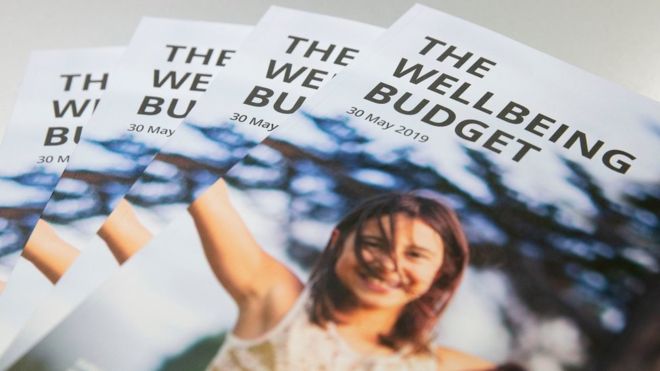Talking Points: May 2019
Posted on 05 Jun 2019 Categories: Blog, Social Security, Talking Points, Wellbeing
by Rethinking Poverty
A big story this month is the launch of a new review of inequality in the UK, but will it make a difference? Discussion of the four-day (or shorter) week and of the respective merits of UBI and UBS continue, while we can take some inspiration from Julian Richer’s handing control of his company, Richer Sounds, to the staff and from the focus on wellbeing of governments in Wales, Scotland and New Zealand.
Will new review of inequality make any difference?

Britain risks heading to US levels of inequality, warns Nobel-prize winning economist Sir Angus Deaton, who will be leading what is billed to be a landmark review of inequality in the UK. He said ‘people were troubled by inequality’ more than at any time since the 1940s – and the impact is so serious that it suggested ‘democratic capitalism is broken’. The Institute for Fiscal Studies thinktank, which is working with Deaton on the study, has just published indicators of inequality – such as the average chief executive of a FTSE 100 company now earning 145 times the average salary, up from 47 times in 1998. It also reports rises in ‘deaths of despair’, such as from addiction and suicide, among the poorest.
Responses to the launch of the study have been mixed. Reports by the great and the good are ten a penny, says Guardian economist Larry Elliott. But this one, he thinks, has the potential to be ‘as important in shaping the Britain of the 21st century as the Beveridge report was in the mid-20th century’. Why? ‘Because Deaton is asking the same fundamental questions that William Beveridge posed almost eight decades ago … Is inequality killing capitalism – and if so, what can be done about it?’ But a group of 40 researchers, educators and campaigners on inequality have expressed concern about the composition of the review’s ‘expert panel’, which has a majority of white economists and a conspicuous absence of world-leading economists for whom income inequality is their primary focus.
Four-day week or nine-hour week?
In April we reported the disappointing news that the Wellcome Trust had scrapped plans to trial a four-day week for 800 workers in its head office. This month we can report that call centre Simply Business, which employs more than 500 people, will launch a trial from September involving call operators in its Northampton contact centre.

NEF’s Aidan Harper, writing for CityMetric, argues that the Green New Deal should include a four-day week. Most immediately, closing offices and cutting the number of commutes would lower work-related energy use, carbon emissions, and the range of pollutants associated with driving. He quotes the findings of a mass trial of a four-day week with 18,000 employees carried out by the Utah state government in 2008.
But recent research from thinktank Autonomy argues that this doesn’t go nearly far enough, and that UK workers must move to a nine-hour week if current carbon levels do not change. The findings are based on OECD and UN data on greenhouse gas emissions per industry in the UK, Sweden and Germany, reports the Guardian’s Matthew Taylor.
UBI or UBS or both
NEF’s Anna Coote reports on a study of admittedly less than full-blown experiments with universal basic income (UBI), including in Kenya, southern India, Alaska and Finland, which concludes that making cash payments to all is no solution to poverty and inequality. The study, conducted for Public Services International, a global trade union federation, reviewed for the first time 16 practical projects that have tested different ways of distributing regular cash payments to individuals across a range of poor, middle-income and rich countries, as well as copious literature on the topic.
While a discussion panel for Slovenia’s Radio Student adds the idea of a Job Guarantee to the mix, NEF’s Andrew Pendleton argues that with our public services and social security safety net in tatters, UBI and UBS should be seen as interlocking elements of a new social contract rather than pitting one against the other.
Damning reports on poverty in the UK
UN special rapporteur on extreme poverty Philip Alston’s report has now been published, following his visit to UK towns and cities and preliminary findings last November. He concludes: ‘The bottom line is that much of the glue that has held British society together since the Second World War has been deliberately removed and replaced with a harsh and uncaring ethos.’
Meanwhile Human Rights Watch (HRW) has accused the UK government of breaching its international duty to keep people from hunger by pursuing ‘cruel and harmful polices’ with no regard for the impact on children living in poverty. Examining family poverty in Hull, Cambridgeshire and Oxford, HRW concluded that tens of thousands of families do not have enough to eat.
More bad news on poverty …
Just a selection from among the many items we could have chosen … New analysis from consultancy Policy in Practice shows that the combined impact of universal credit, a two-child limit on some welfare payments and the benefits cap will trigger a big increase in families unable to make ends meet, while a study for End Child Poverty Coalition estimates that in pockets of some large cities like London, Greater Manchester and Birmingham about two-thirds of children are living in poverty-hit families. Whole areas are being abandoned to poverty, says the Coalition. Meanwhile the Guardian reports that destitute children are being unlawfully denied support by local councils because their parents’ immigration status is under suspicion.
Inspiration from Richer Sounds

While we are bombarded with stories of CEOs paying themselves fabulous amounts, Richer Sounds founder Julian Richer is handing control of the hi-fi and TV retail chain to staff. Richer has transferred 60 per cent of his shares into a John Lewis-style trust. The company will pay him an initial £9.2 million for the stake but he is giving £3.5 million of that back to staff, who will receive £1,000 for every year they have worked for the company. The Employee Ownership Association says more than 350 businesses have now adopted the model, with at least 50 more preparing to follow suit. Richer, who recently turned 60, said the ‘time was right’ to pass the baton to the chain’s 531 employees.
The country we want? If only we knew …
Britain is in the grip of an existential crisis that reaches far beyond Brexit, writes the Guardian’s Aditya Chakrabortty. ‘You don’t appear to know what you want to become,’ observes philosopher Roberto Unger, dismissing ‘Empire 2.0 and all that flag-waving stuff’. Instead, he advocates ‘a radical transfer of power and money to people and places far from Westminster, so they can try their own social and economic experiments that will inform and revivify national politics. The guerrilla localism of Preston, in Lancashire, fits that brief, as does the Welsh government’s new focus on the foundational economy’. ‘The philosopher’s challenge is the right one,’ says Chakrabortty. ‘What Brexit has shown again is our inability to think anew about what the state and the economy are for, to sketch out what a different future might look like.’
Focus on wellbeing seems like a good start
New Zealand has just announced its first ‘wellbeing budget’, with a focus on mental health, addressing family violence and child wellbeing. Although countries such as the UK have begun to measure the national rate of wellbeing, New Zealand is the first western country to design its entire budget based on wellbeing priorities.

The UK’s devolved governments have also put wellbeing at the heart of their approach, as described by Carnegie UK’s Jennifer Wallace in her recently published open access book Wellbeing and Devolution: Reframing the Role of Governments in Scotland, Wales and Northern Ireland. In Wales seven wellbeing goals are based on a National Conversation on The Wales We Want and enshrined in the Wellbeing for Future Generations Act.
‘Talking Points’ is collated by Caroline Hartnell, who convenes the Rethinking Poverty blog.
Want to keep up-to-date with more articles like this? Sign up to our newsletter.
Posted on 05 Jun 2019 Categories: Blog, Social Security, Talking Points, Wellbeing
